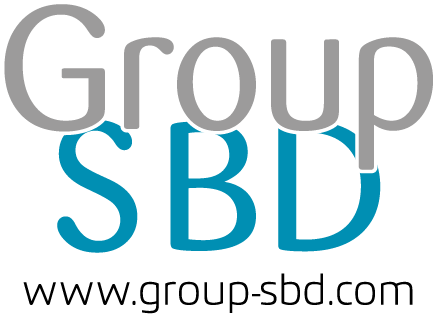Early phsyiotherapy in patients with Guillain Barr├ę syndrome associated with SARS-CoV-2
Fisioterapia precoz en pacientes con s├şndrome de Guillain Barr├ę asociado a SARS-CoV-2
Authors: Judith Armas Gay
Coauthors: Silvia Rodr├şguez Garrido, Laura Merino Caro, Joan Daniel Mart├ş Romeu
Keywords: Early physiotherapy. Guillain Barr├ę Syndrome. SARS-CoV-2. Critical patient
Keywords: Fisioterapia precoz. S├şndrome Guillain Barr├ę. SARS-CoV-2. Paciente cr├ştico
Abstract: Guillain Barr├ę Syndrome (GBS) is an autoimmune disorder that mainly affects the peripheral nerves, so early initiation of physiotherapy is essential. GBS has been described as one of the clinical manifestations of SARS-CoV-2 but, currently, we donÔÇÖt find bibliographic references from the beginning of physiotherapy until the post-acute phase.
Abstract : El S├şndrome de Guillan Barr├ę (SGB) es un trastorno autoinmunitario que afecta principalmente a los nervios perif├ęricos por lo que el inicio precoz de la fisioterapia es esencial. El SGB se ha descrito como una de las manifestaciones cl├şnica del SARS-CoV-2 pero, actualmente, no encontramos referencias bibliogr├íficas del inicio de la fisioterapia hasta la fase post-aguda.
02-06-2022
Judith Armas Gay
0 Comments
| Citation: Judith Armas Gay, Silvia Rodr├şguez Garrido, Laura Merino Caro, Joan Daniel Mart├ş Romeu. Fisioterapia precoz en pacientes con s├şndrome de Guillain Barr├ę asociado a SARS-CoV-2. https://doi.org/10.24175/sbd.2022.000080 |
| Received: June 02, 2022 Accepted: June 07, 2022 Published: June 07, 2022 |
| Copyright: © 2022 Armas Gay et al. This is an open access article distributed under the terms of the Creative Commons Attribution License (CC BY-NC), which allows, distribution, reproduction in any medium, provided the original author and source are credited and non-commercial use. |
| Funding: |
| Conflicts of Interest: |
Fisioterapia precoz en pacientes con síndrome de Guillain Barré asociado a SARS-CoV-2
Judit Armas Gay, Silvia Rodríguez Garrido, Laura Merino Caro, Joan Daniel Martí Romeu
Servicio de rehabilitación, ICEMEQ, Hospital Clínic de Barcelona
Autor para correspondencia
Judit Armas Gay, jarmas@clinic.cat
Palabras clave: Fisioterapia precoz, síndrome Guillain Barré, SARS-CoV-2, paciente crítico.
Introducción
El Síndrome de Guillan Barré (SGB) es un trastorno autoinmunitario que afecta principalmente a los nervios periféricos por lo que el inicio precoz de la fisioterapia es esencial. El SGB se ha descrito como una de las manifestaciones clínica del SARS-CoV-2 pero, actualmente, no encontramos referencias bibliográficas del inicio de la fisioterapia hasta la fase post-aguda.
Objetivo
Evaluar los efectos de la fisioterapia precoz en pacientes con SGB asociado al SARS-CoV-2.
Metodología
Caso clínico: Varón de 68 años con SGB asociado a SARS-CoV-2 que ingresa en UCI, requiriendo intubación siendo y conexión a ventilación mecánica (VM). Se inició fisioterapia a las 24h del ingreso, recibiendo un total de 120 sesiones (80 en UCI) a razón de 2 sesiones al día.
En el momento del despertar, al alta de la UCI y al alta hospitalaria se registraron las siguientes variables: inestabilidad hemodinámica y/o respiratoria (eventos adversos relevantes), fuerza muscular (MRC), movilidad (ICU-MS), incapacidad funcional (Índice de Barthel), destete de la VM (días) y decanulación traqueotomía (días).
Resultados
En las 120 sesiones que recibió el paciente no sucedieron eventos adversos relevantes. En cuanto a la evolución de las puntuaciones fue para el MRC de 39/60 vs. 46/60 vs. 55/60, para el ICU-MS de 2/10 vs. 4/10 vs. 8/10 y para el Índice Barthel de 0/100 vs. 15/100 vs. 50/100. El destete de la VM se realizó a los 14 días de la realización de la traqueotomía y la decanulación de ésta a los 32 días.
Discusión
La fisioterapia precoz parece ser segura dado que no hubo ningún evento adverso relevante durante las sesiones de fisioterapia y eficaz ya que se han obtenido beneficios en la fuerza muscular, la movilidad y la incapacidad funcional, favoreciendo el destete de la VM y la decanulación de la traqueotomía.
Conclusión
La fisioterapia precoz en los pacientes con SGB asociado al SARS-CoV-2 debería considerarse desde el momento del diagnóstico pues parece ser segura y eficaz.
Early phsyiotherapy in patients with Guillain Barré syndrome associated with SARS-CoV-2
Judit Armas Gay, Silvia Rodríguez Garrido, Laura Merino Caro, Joan Daniel Martí Romeu
Servicio de rehabilitación, ICEMEQ, Hospital Clinic de Barcelona
Corresponding author
Judit Armas Gay, jarmas@clinic.cat
Keywords: Early physiotherapy, Guillain Barré Syndrome, SARS-CoV-2, critical patient.
Introduction
Guillain Barré Syndrome (GBS) is an autoimmune disorder that mainly affects the peripheral nerves, so early initiation of physiotherapy is essential. GBS has been described as one of the clinical manifestations of SARS-CoV-2 but, currently, we don't find bibliographic references from the beginning of physiotherapy until the post-acute phase.
Objective
To assess the effects of early physiotherapy in patients with GBS associated with SARS-CoV-2.
Methodology
Clinical case: 68-year-old male with GBS associated with SARS-CoV.2 who was admitted to the ICU, requiring intubation and connection to mechanical ventilation (MV). Physiotherapy was started 24h after admission, receiving a total of 120 sessions (80 in the ICU) at a rate of 2 sessions per day.
At the time of awakening, discharge from the ICU and hospital discharge, the following variables were recorded: hemodynamic and/or respiratory instability (relevant adverse events), muscle strength (MRC), mobility (ICU-MS), functional disability (Barthel Index), weaning from MV (days) and tracheostomy decannulation (days).
Results
In the 120 sessions that patient received, no relevant adverse events occurred. Regarding the evolution of the scores, it was for the MRC of 39/60 vs. 40/60 vs. 55/60; for the ICU-MS of 2/10 vs. 4/10 vs. 8/10 and for the Barthel Index of 0/100 vs. 15/100 vs. 50/100. Weaning from MV was performed 14 days after performing the tracheostomy and tracheostomy decannulation after 32 days.
Discussion
Early physiotherapy seems to be safe since there were no relevant adverse events during the physiotherapy sessions and effective since benefits have been obtained in muscle strength, mobility and functional disability, favouring weaning from MV and tracheostomy decannulation.
Conclusion
Early physiotherapy in patients with GBS associated with SARS-CoV-2 should be considered from the moment of diagnosis as it appears to be safe and effective.





